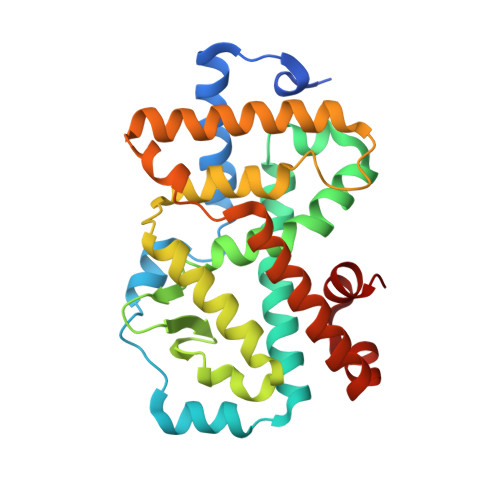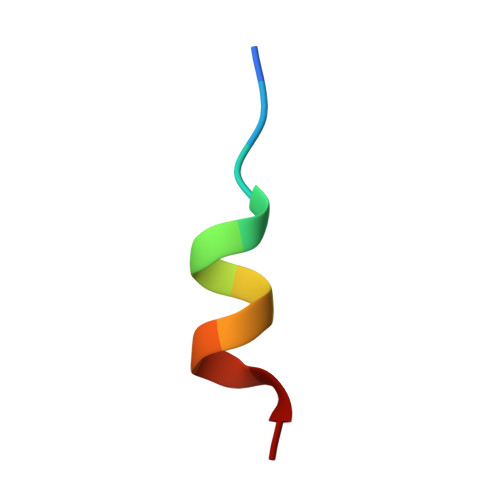Fragment Screening of Rorgammat Using Cocktail Crystallography: Identification of Simultaneous Binding of Multiple Fragments.
Xue, Y., Guo, H., Hillertz, P.(2016) ChemMedChem 11: 1881
- PubMed: 27432277
- DOI: https://doi.org/10.1002/cmdc.201600242
- Primary Citation of Related Structures:
5G42, 5G43, 5G44, 5G45, 5G46 - PubMed Abstract:
The retinoic-acid-related orphan receptor γ t (RORγt), as a master regulator of Th17 cell pathology, has become an attractive target for small-molecule drug discovery for the treatment of Th17-cell-related autoimmune diseases. A crystallographic fragment screening was carried out for RORγt using the ligand binding domain. An overall hit rate of 5.5 % was obtained by screening 384 compounds in 96 cocktails. Five distinct hotspots were identified, and four regions of anchoring polar interactions were observed. In addition, significant induced fit was found for the binding of several fragments. Strikingly, a simultaneous binding of three fragments was revealed which presents interesting features including π-π stacking, multiple hydrogen bonds to the protein, and significant induced fit. Overall, the results offer a complete mapping of the ligand binding pocket and provide valuable inspiration in structure-based design for RORγt lead generation and optimization. The crystallographic screening also resulted in fragment hits that bind at the surface away from the ligand binding pocket. This surface site is near the plausible dimer interface by analogy with other nuclear receptor systems, which can provide initial hints to explore alternative ways to modulate RORγt through protein-protein interactions.
Organizational Affiliation:
Discovery Sciences, Innovative Medicines and Early Development Biotech Unit, AstraZeneca Gothenburg, Pepparedsleden 1, 431 83, Mölndal, Sweden. yafeng.xue@astrazeneca.com.
















